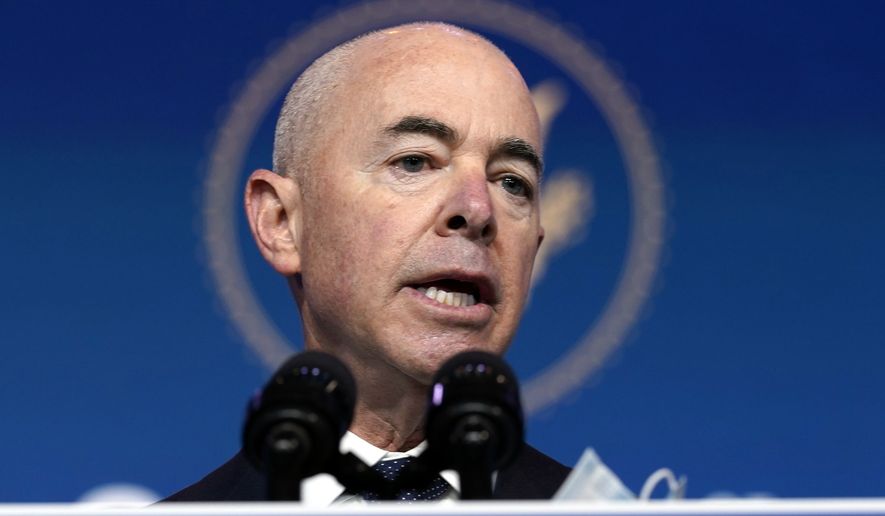Ransomware has become an “epidemic,” U.S. Homeland Security Secretary Alejandro Mayorkas said Thursday, adding that improving efforts to combat it are top among projects he plans to prioritize.
Mr. Mayorkas, President Biden’s newly confirmed head of the Department of Homeland Security outlined his efforts to fight ransomware during a virtual keynoted speech he delivered.
Speaking at the annual President’s Cup Cybersecurity Challenge, Mr. Mayorkas said DHS will hold several “cybersecurity sprints” to mobilize action in specific priority areas, ransomware first.
Additionally, Mr. Mayorkas announced that recipients of grants administered by the Federal Emergency Management Agency will be soon required to spend 7.5% on cybersecurity instead of 5%.
That percentage adjustment will result in FEMA grant recipients spending $25 million more on cybersecurity, said Mr. Mayorkas, a former U.S. federal prosecutor and Obama administration official.
Ransomware is a type of malicious software, or malware, that is designed to render an infected computer inoperable or hold its contents hostage until a payment is made to the person responsible. Paying the perpetrator of a ransomware attack does not guarantee recovery, however. Experts recommend applying security updates when available to patch against bugs that risk being exploited by ransomware attackers.
Mr. Mayorkas also said DHS is considering other ways to help defend against ransomware, including potentially new grants awarded by the Cybersecurity and Infrastructure Security Agency.
“Let us be clear: ransomware is not new. It has been around for years. What is new is the evolution of attackers’ methods, namely their ability to make money from it and the increased frequency of these attacks,” Mr. Mayorkas said in his prepared remarks, according to a copy DHS published online.
“Tackling ransomware and protecting the weakest link will require partnering with state, local, tribal and territorial governments and private sector entities across the country,” said Mr. Mayorkas. “This cross-sector collaboration is the hallmark of DHS‘s approach to cybersecurity.”
Mr. Mayorkas noted in his prepared remarks that attackers including criminal hackers and nation-state actors have “paralyzed” cities across the U.S. with ransomware in recent years, citing examples in major cities such as Atlanta and Baltimore, in addition to “several dozen police and sheriffs’ offices” in various states across the country.
The FBI said in its annual 2019 Internet Crime Report, the most recent available, that it received 2,047 complaints about ransomware that year. Altogether, those infections caused over $8.9 million in adjusted losses, according to the FBI.
• Andrew Blake can be reached at ablake@washingtontimes.com.




Please read our comment policy before commenting.